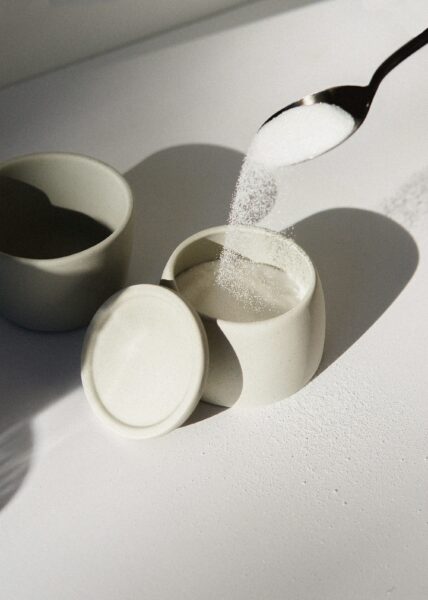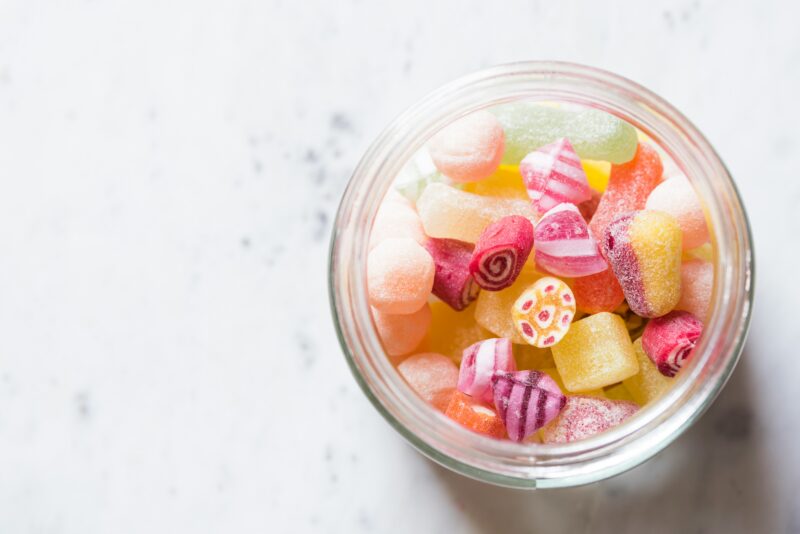
Sugar is a staple in diets worldwide, but excessive consumption is linked to health problems like obesity, diabetes, and heart disease. As awareness grows, many people seek healthier alternatives that provide sweetness without the negative health effects.
Whether you want to reduce calories, manage blood sugar levels, or simply adopt a healthier lifestyle, there are plenty of natural and artificial sweeteners to explore. This article delves into the best sugar alternatives, their benefits, drawbacks, and how to use them effectively in your daily diet.

Natural Sweeteners: Healthier Alternatives to Refined Sugar
1.1 Honey
Honey is one of the oldest known natural sweeteners, packed with antioxidants, vitamins, and minerals, making it a better option than refined sugar. It also has antibacterial properties and may boost immunity.
Benefits:
✔ Rich in antioxidants
✔ Aids digestion
✔ Less processed than refined sugar
Drawbacks:
✖ High in calories
✖ Can still raise blood sugar levels
Best Uses:
- Adding to tea or coffee
- Drizzling over pancakes or yogurt
- Using as a natural sweetener in baking
1.2 Maple Syrup
Extracted from the sap of maple trees, pure maple syrup is another great sugar alternative. It contains minerals like zinc and manganese, which support immune function.
Benefits:
✔ Contains essential minerals
✔ Lower glycemic index than sugar
Drawbacks:
✖ Still high in calories
✖ Needs to be consumed in moderation
Best Uses:
- Sweetening oatmeal or cereal
- Using in baking recipes
- Drizzling over waffles and pancakes

1.3 Stevia
Stevia is a zero-calorie natural sweetener derived from the leaves of the stevia plant. It is 300 times sweeter than sugar but does not affect blood sugar levels.
Benefits:
✔ Zero calories
✔ Does not raise blood sugar levels
✔ May help lower blood pressure
Drawbacks:
✖ Can have a slightly bitter aftertaste
✖ Overuse may cause digestive discomfort
Best Uses:
- Adding to tea or coffee
- Sweetening smoothies
- Using in low-calorie desserts
1.4 Coconut Sugar
Coconut sugar is derived from the sap of coconut palm trees and is less processed than regular sugar.
Benefits:
✔ Slightly lower glycemic index than refined sugar
✔ Contains small amounts of nutrients
Drawbacks:
✖ High in fructose
✖ Still a form of sugar
Best Uses:
- Baking cookies and cakes
- Sweetening beverages
- Making homemade granola

- Artificial Sweeteners: Low-Calorie Sugar Alternatives
2.1 Aspartame
Aspartame is a widely used artificial sweetener found in diet sodas, sugar-free gum, and some processed foods.
Benefits:
✔ Low in calories
✔ Does not cause blood sugar spikes
Drawbacks:
✖ May cause headaches or sensitivity in some people
✖ Not suitable for people with phenylketonuria (PKU)
Best Uses:
- Diet sodas
- Sugar-free chewing gum
- Low-calorie desserts
2.2 Sucralose (Splenda)
Sucralose is another popular sugar alternative used in many packaged foods. It is heat-stable, making it a good option for baking.
Benefits:
✔ Zero calories
✔ Safe for diabetics
Drawbacks:
✖ Some studies suggest it may alter gut bacteria
✖ Not a completely natural option
Best Uses:
- Baked goods
- Tea and coffee
- Low-calorie ice cream
2.3 Saccharin
Saccharin has been used as a sugar substitute for over a century and is commonly found in tabletop sweeteners like Sweet’N Low.
Benefits:
✔ Zero calories
✔ Highly sweet, so only a small amount is needed
Drawbacks:
✖ May have a metallic aftertaste
✖ Some concerns about long-term health effects
Best Uses:
- Sweetening hot beverages
- Sugar-free candies
- Sugar Alcohols: A Balanced Middle Ground
Sugar alcohols are a type of carbohydrate that provides sweetness but with fewer calories than sugar.

3.1 Xylitol
Usually Xylitol is found in sugar-free gum. It is known to improve dental health.
Benefits:
✔ Helps prevent tooth decay
✔ Lower glycemic index than sugar
Drawbacks:
✖ Can cause digestive issues in large amounts
✖ Toxic to dogs (keep away from pets)
Best Uses:
- Sugar-free gum
- Dental products
- Baked goods
3.2 Erythritol
Erythritol is another sugar alcohol that is almost calorie-free and does not raise blood sugar levels.
Benefits:
✔ No effect on blood sugar levels
✔ Does not cause cavities
Drawbacks:
✖ Can cause bloating if consumed in excess
Best Uses:
- Low-carb desserts
- Sugar-free syrups

- Which Sugar Alternative is Best for You?
The best sugar substitute depends on your health goals and dietary preferences:
✅ For weight loss: Stevia, Erythritol, or Monk Fruit Sweetener
✅ For diabetics: Stevia, Sucralose, or Erythritol
✅ For baking: Maple Syrup, Coconut Sugar, or Sucralose
✅ For a natural taste: Honey, Maple Syrup, or Coconut Sugar
Making the Switch to a Healthier Sweetener
Choosing a sugar alternative depends on taste preferences, health goals, and dietary restrictions. While some sweeteners are better suited for weight loss or blood sugar control, others provide natural nutrients and flavors.
By understanding the benefits and drawbacks of different sugar alternatives, you can make an informed choice and enjoy a sweet life without compromising your health.



